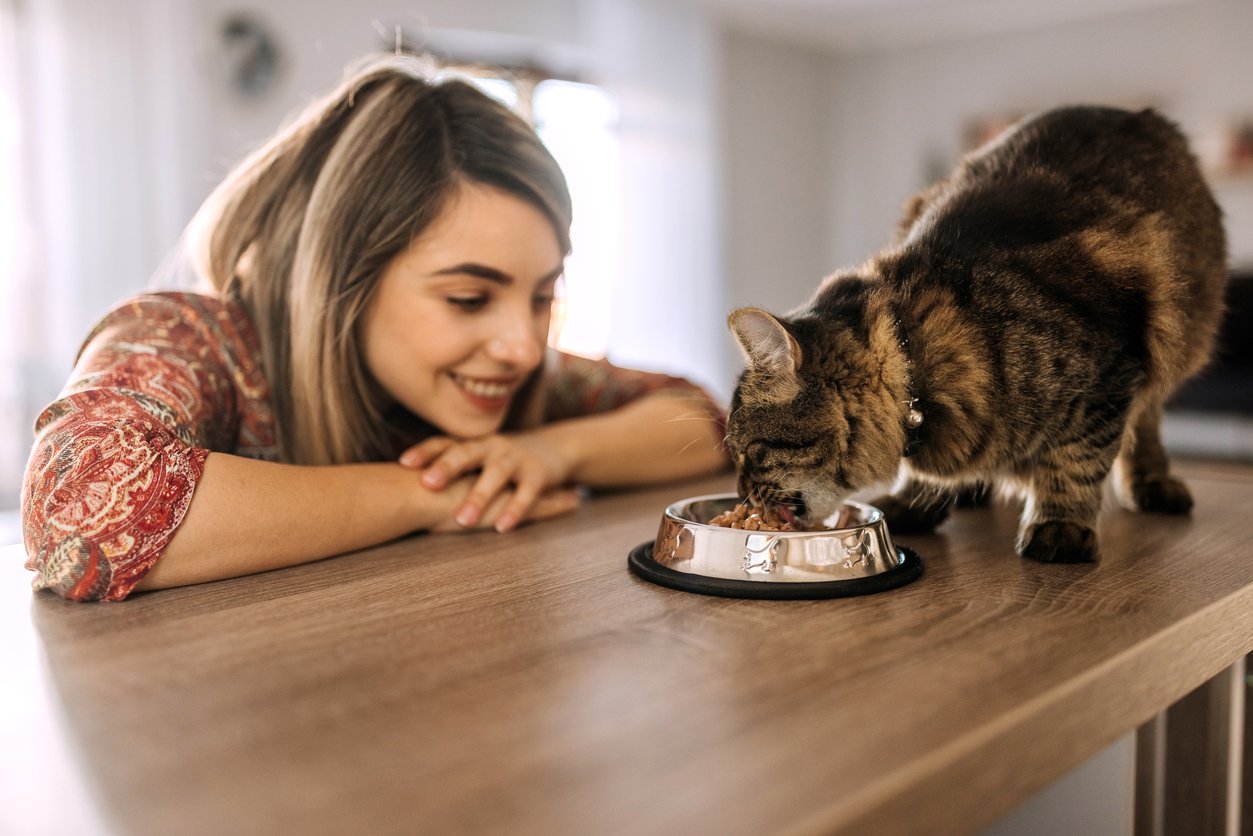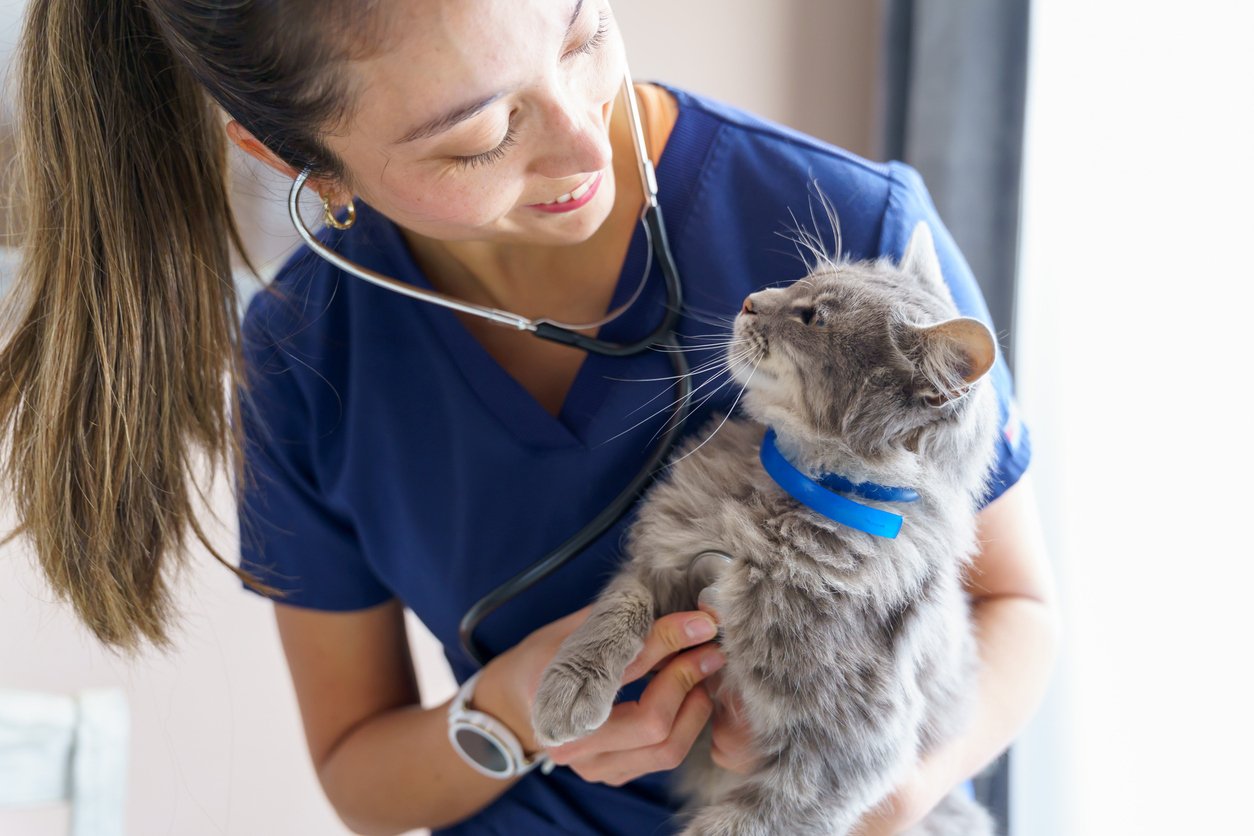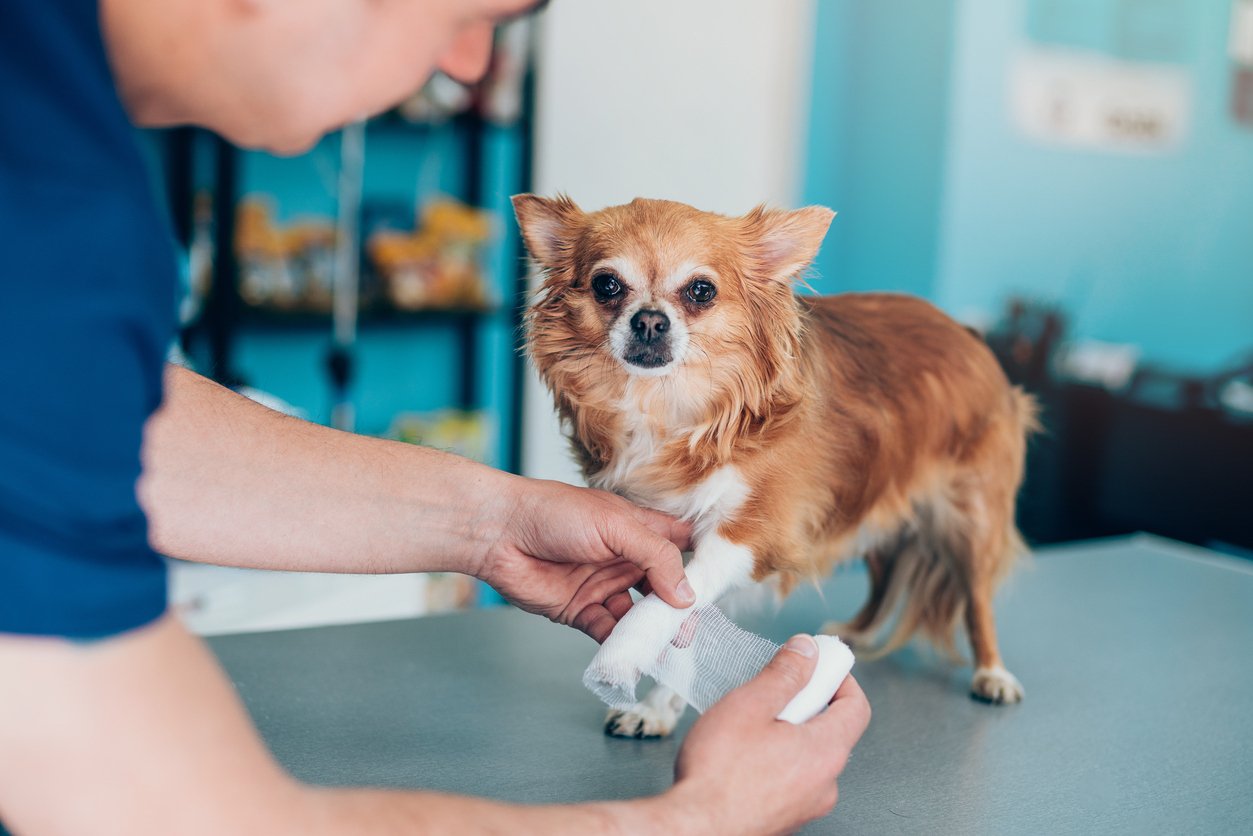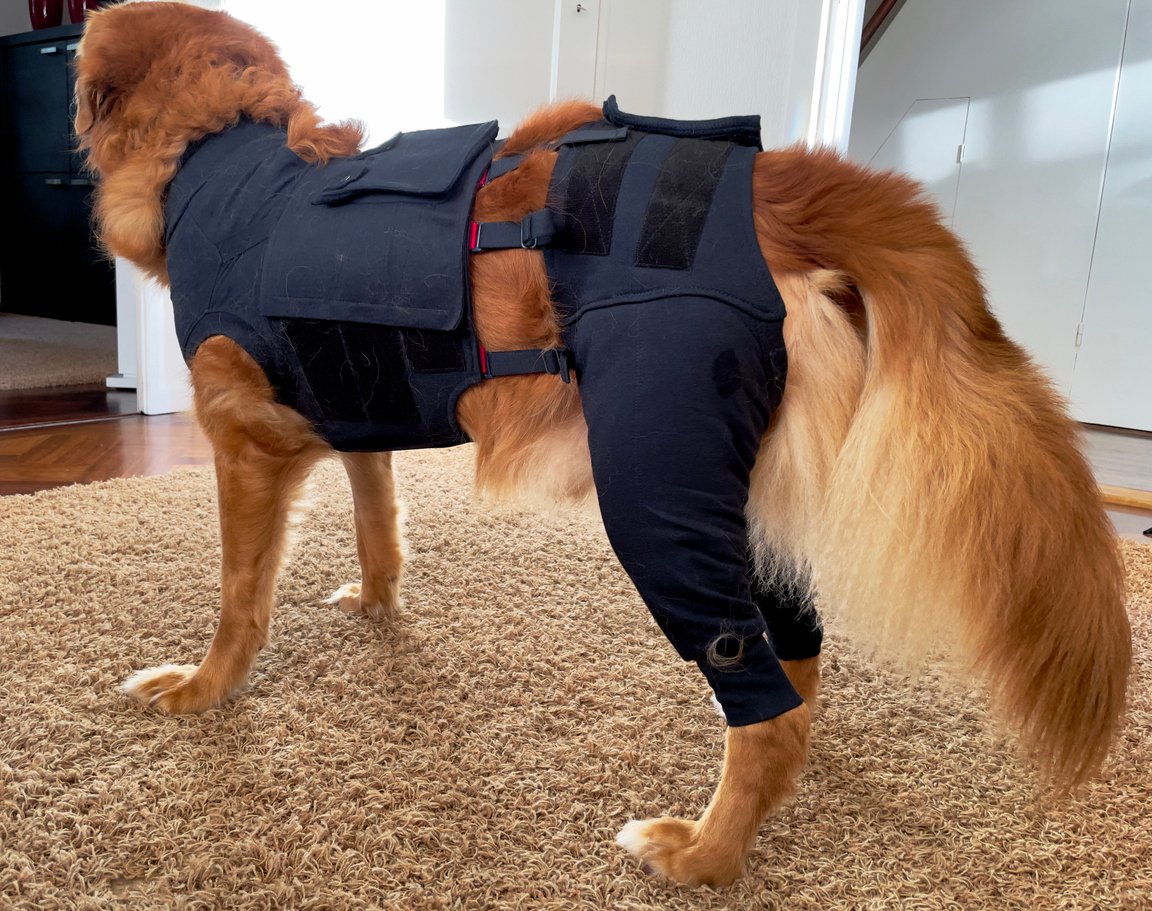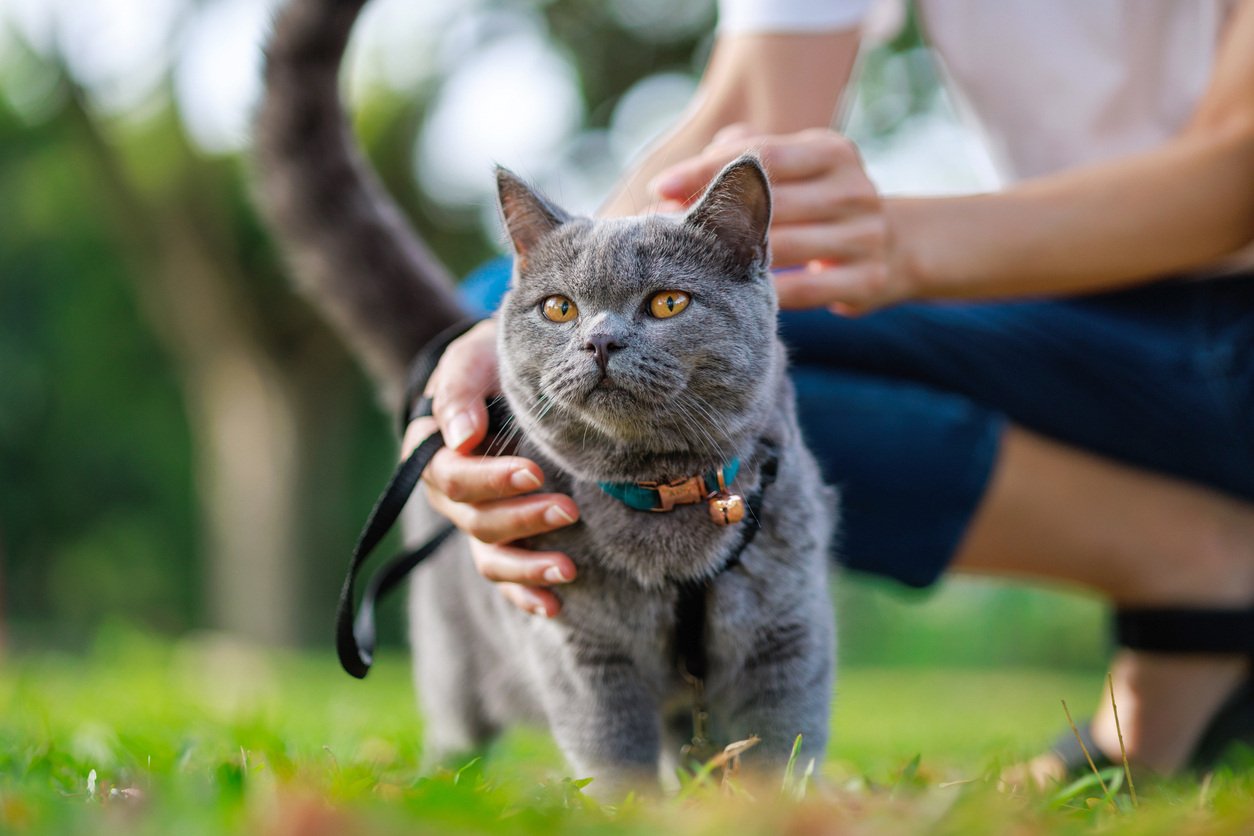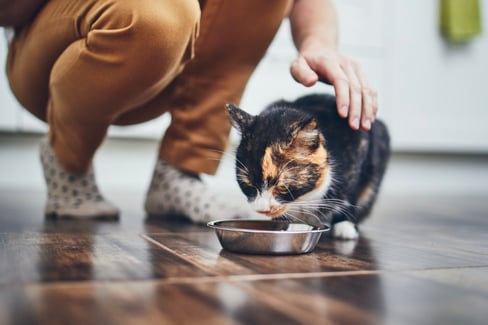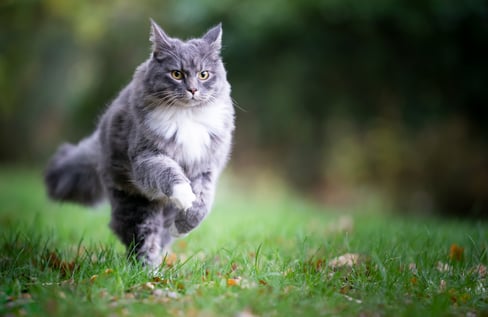Table of Contents
Cats may be thought of as independent creatures, but that doesn’t mean they don’t need careful care and attention. There’s no shortage of feline health issues that could potentially plague your kitty at some point in their life: thyroid disease, degenerative joint disorder, arthritis, diabetes… those are a lot of issues to consider, and that isn’t even an exhaustive list!
But worrying about your kitty developing these conditions isn’t the answer, either. The best thing you can do for your cat is to make sure they have a balanced diet with all the vitamins and minerals they need and add cat supplements where necessary. In other words, the cupboard that you dedicate to pet supplies doesn’t have to look like a pharmacy—but depending on your cat and the conditions they have or are at risk of developing, you may want to add a few supplements to their daily diet to support their overall cat health.
In this article, we explore different types of feline vitamins and supplements, talk about what to look for when choosing feline vitamins and supplements, and give recommendations for different types of products.
Feline Vitamins vs. Supplements
The difference between vitamins and supplements for pets can be confusing initially, as they are sometimes discussed as the same thing. After all, they both provide your cat with additional important factors in their diet to treat or prevent feline health issues. So what’s the difference between the two?
|
Vitamins |
Supplements |
|
Singular sources of nutrients, often used to treat a specific deficiency |
More of an all-in-one solution often used to treat or boost health—strong joints, healthy gut, thick and shiny coat, etc. |
There are a few other important considerations to keep in mind when it comes to feline vitamins and supplements.
Vitamins should be used cautiously—too much of a good thing can potentially cause additional feline health issues on top of the ones you’re trying to solve with vitamins! Remember that typical commercial cat food labeled as “nutritionally complete” will have all of the nutrients—including vitamins—that your cat needs, so any additional vitamins you want to give your kitty should be done with the advice of a feline veterinary care expert.
If your kitty ingests too much of a specific vitamin, they could get sick. For example, vitamin D in cats is used to help cats absorb more calcium, which is essential for healthy bones, muscle movement, nervous system, and immune system function. However, too much vitamin D can cause poisoning, resulting in vomiting, diarrhea, increased drinking and urination, abdominal pain, and more. Without treatment, there is potential death from vitamin D poisoning in cats. Not every vitamin has deadly overdose effects, but many do, so it’s important to talk to your veterinarian and keep them in the loop about which vitamins you’re giving your cat, how much, and how often.
On the other hand, Supplements will contain more than one nutrient, vitamin, and/or mineral to help treat a preexisting condition or boost health in some way, rather than vitamins often used to treat a specific deficiency.
Supplements can contain vitamins, minerals, and other ingredients to provide a complete solution to improve or treat joint health, digestive health, skin and coat, and more. The same considerations with vitamins should be applied to supplements, like seeking the advice of your veterinarian before giving the supplement and ensuring that the dosage instructions are followed to prevent an overdose.
It’s important to give vitamins and supplements to your cat consistently. The effectiveness of both remedies depends on the contents building up in your kitty’s body over time, so ebbs and flows in the amount of vitamin or supplement you give can mean the solution won’t be as effective. You may be tempted to give more to make up for a missed dose—but don’t do so unless you’re following advice from a feline veterinary care expert.
Common Types of Feline Vitamins
There are a variety of different types of feline vitamins that are essential for a typical cat diet and some that can be added in specific circumstances, such as managing a health condition. Here are some common feline vitamins you’ll likely come across:
- Vitamin A is essential for cats to maintain their skin, coat, muscle, and nerve health. It’s also an important vitamin for pregnant female cats and kittens as the kittens require it for general growth, muscle, and neurological development.
- Taurine is an essential amino acid and vitamin-like substance for cats that aids with a variety of bodily functions, including the heart, eyes, digestion, and reproductive development.
- Vitamin D ensures healthy bones and teeth.
- B vitamins like thiamin, riboflavin, niacin, pyridoxine, pantothenic acid, and cobalamin assist with the chemical reactions needed for cats to harness energy from food.
- Folic acid and biotin (types of B vitamins) help with cell growth and maintenance
- Choline, also usually classified as a B vitamin, assists with fat transport and transmission of neurological signals and exists as part of cell membranes.
- L-lysine is a nutritional vitamin for cats that vets often recommend for cats that experience respiratory issues, such as sneezing, wheezing, nasal congestion, and more.
Commercially available cat food will contain the above ingredients, and if the food is labeled “nutritionally complete,” will contain the necessary amounts of each to maintain your cat’s overall health.
Common Types of Feline Supplements
Feline supplements are more all-in-one solutions to improve or treat common health issues in cats. Here are some common feline supplements that you’re likely to encounter if you’re looking for something to help your cat with a certain health issue:
- Cat joint supplements, which include glucosamine, chondroitin, MSM, and in some cases, hyaluronic acid. Older cats experience joint issues at a much higher rate than younger cats, but as many as 70% of cats will experience some type of joint issue (such as cat arthritis) in their lifetime. To help prevent your cat from suffering from joint pain, incorporating a joint supplement like TRI-ACTA is recommended. The combination of two types of glucosamine, chondroitin and Methylsulfonylmethane (MSM, a natural anti-inflammatory) gives your kitty maximum joint health and mobility support.
- Cat probiotics introduce essential microorganisms to balance out your cat’s stomach flora, contributing to better digestion and often used to help treat issues like persistent diarrhea.
- Fish oil for cats is one way to incorporate key omega-3 fatty acids into your cat’s diet, which support the structure and function of cell membranes and assist in supplying energy to the body. Your kitty’s body can’t produce omega-3 fatty acids naturally, so they need to be present in your cat’s food.
TRI-ACTA for Pets
A proactive approach for developing and younger adult pets to maintain optimal joint health mobility, minimize inflammation and fend off age-related ailments.
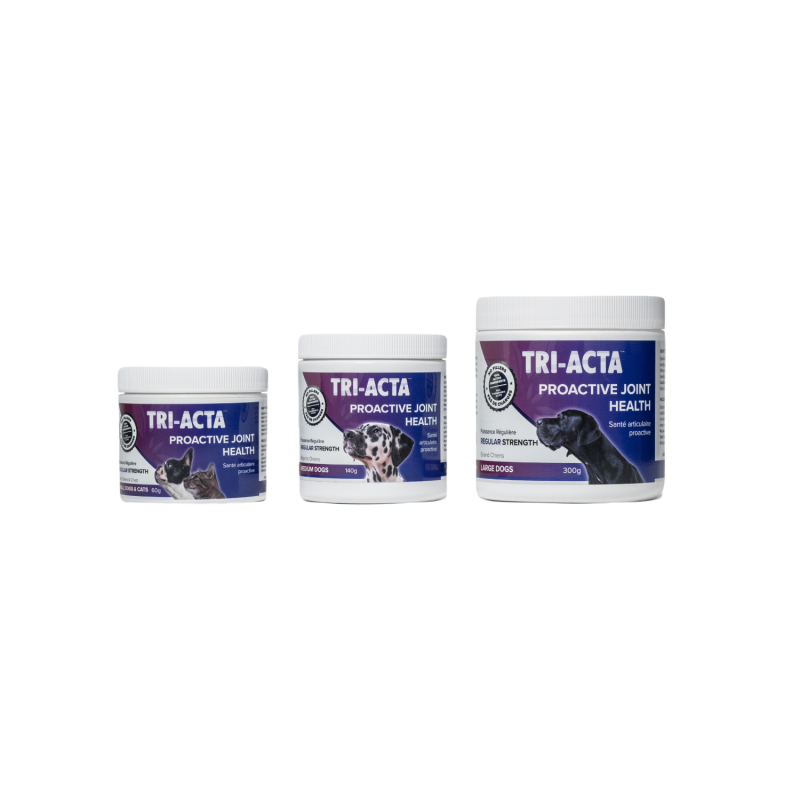
Importance of Supplementation & Vitamins for Feline Health Issues
Just like humans, cats need to get specific nutrients from their food. In some cases, a medical condition can prevent your kitty’s body from absorbing or using essential nutrients in their food effectively, which can lead to serious health conditions. In some cases, simply providing more of the nutrients your cat lacks can fix the issue and help your cat live a normal and healthy life.
For example, a condition called Exocrine Pancreatic Insufficiency (EPI) in cats causes a lack of pancreatic enzymes, leading to maldigestion (impaired nutrient absorption), which results in large amounts of nutrients in the digestive tract, which leads to large stools and steatorrhea (excess fat in stool). To manage this condition, supplementation with pancreatic enzymes is required, which can come in various forms, including powders and raw beef, pork, or game pancreas. Some cats also need cobalamin (vitamin B12) to be given as well. While this condition can usually not be cured, with careful management through supplementation, cats with this condition can live a normal life at a normal life span.
Joint issues are also a super common affliction for cats:
- In one study that looked at 100 cats, radiographic evidence of arthritis showed 82% of the cats over 14 years and 61% of the cats older than 6 years had arthritis in at least one joint.
- 48% of cats showed changes in multiple joints.
- Only 13 out of the 100 cat owners in the study reported no signs of lameness.
Of this random sampling of cats, the majority showed joint issues that could cause pain and mobility problems. But it doesn’t have to be the same for your kitty. By giving your cat a joint supplement, you can support your cat’s joint health as they age. TRI-ACTA is a great choice for a preventative daily supplement, but if your kitty is already suffering from joint issues, consider giving them TRI-ACTA H.A. The inclusion of hyaluronic acid increases the viscosity of the synovial fluid in your kitty’s joints, allowing for easier, pain-free movement.
What to Look For in Feline Supplements & Vitamins
To choose the best feline supplements and vitamins for your kitty, there are several important pieces of information that you should keep in mind:
- Know how to read a supplement label. Different manufacturers of pet supplements will use different fonts and formats for their ingredient lists, so knowing what you need to be looking for is essential. You’ll want to look for dosage instructions (usually based on weight) as well as active versus inactive ingredients. Active ingredients provide direct benefits to your cat’s health according to whatever ailment you’re giving them the supplement for, so joint health, digestive health, or skin and coat, for example. Inactive ingredients consist of fillers, additives, and binders that provide no benefit to your cat’s health.
- Knowing the ratio of active versus inactive ingredients. The best feline vitamins and supplements will clearly list the active versus inactive ingredients on the product packaging or their website. The best options are 100% active ingredients, meaning the product does not contain fillers, additives, binders, or preservatives. But sometimes, determining the amount of inactive ingredients can be tricky, and you’ll have to do some light math. For example, if the dose of a feline supplement says it contains 500mg of glucosamine as the only active ingredient and a total dose is 1600 mg, then you know that 1100 mg is made up of inactive ingredients.
- Source of ingredients. You’ll want to choose a feline supplement or vitamin that uses high-quality ingredients, otherwise, the therapeutic value of it may not be enough to help your kitty. Looking for companies that follow good manufacturing practices (GMP) for pet products is a good bet—they’ll usually list this on the product packaging or on their website. When a feline supplement or vitamin follows GMP, the ingredients must be independently, randomly tested, and verified, ensuring their quality.
- Designations. For feline vitamins and supplements in Canada and the United States, there are certain designations that manufacturers can seek out to increase consumer trust in their products. In Canada, the Veterinary Health Product designation means that the manufacturer follows GMP, and the ingredients have scientifically proven evidence that vouches for their effectiveness.
- Reviews. Reading reviews of feline vitamins and supplements before committing to a purchase is a good idea, as it will give you a better understanding of if their current and past customers find value in the product.
Now that you have a good understanding of what you should be looking for when choosing feline vitamins and supplements let’s get into our recommendations.
Best Feline Supplements
The feline supplement recommendations below were chosen based on their transparency, ingredients, and reviews.
1. TRI-ACTA H.A.
Developed with 100% active ingredients and to provide exceptional care for your kitty’s joints, TRI-ACTA H.A. is our top recommendation for the best feline supplement. Unlike most cat joint supplements, TRI-ACTA products include two types of glucosamine, which ensures that your cat’s joints will get the maximum joint support possible. In addition to chondroitin and MSM, TRI-ACTA H.A. also includes hyaluronic acid, which aids ease of movement. TRI-ACTA H.A. is recommended for treating elderly feline health problems related to joint health, or any cat with joint problems.
A breakdown of the ingredients in TRI-ACTA H.A. is provided in the table below:
|
Ingredient |
Purpose |
|
Glucosamine sulfate and HCl |
|
|
Chondroitin |
|
|
MSM |
|
|
Hyaluronic acid |
|
TRI-ACTA H.A. dosages differ by weight, but most cats will only need 0.5 g – 1 g daily.
TRI-ACTA H.A. for Pets
Our maximum strength formula is optimally designed to accelerate the formation of cartilage, minimize inflammation, expedite the healing process, and improve joint conditions.
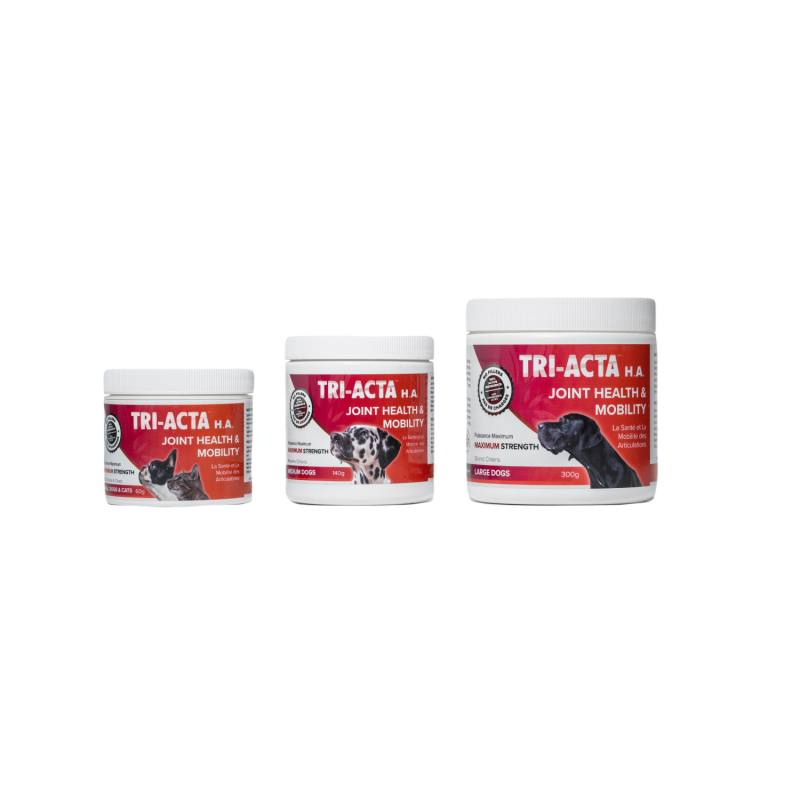
Starts at $27.99 CAD for a 60g container. Pricing as of October 2023.
2. Purica (Powder)
As a powdered joint supplement, Purica offers a good mix of ingredients that will support your cat’s joint health. The product’s website lists the dosage and ingredients in an easy-to-understand format with clear instructions. The therapeutic ingredients it contains for joint health include glucosamine HCl, MSM, and betaine hydrochloride (a form of hyaluronic acid). Interestingly, Purica does not contain Chondroitin, which may mean that cartilage repair and regeneration may not be as strong with this product.
Each dose is 2 g of powder per 20lb, so most cats should only get one dose per day. However, that’s double the amount you would need with TRI-ACTA H.A.
Other ingredients that Purica contains include vitamins C, E, grape seed and green tea extract, and magnesium. Given the variety of ingredients in this supplement, it would be advisable to consult your vet before giving it to your cat.
Starts at $27.49 CAD for a 150g container. Pricing as of October 2023.
3. Grizzly Hip & Joint Aid for Dogs & Cats
Marketed for cats and dogs, this liquid joint supplement relies on its fishy taste (thanks to the wild krill oil) to make it irresistible for your pet. Each dose (which is about 3.5 ml) contains several important therapeutic ingredients, including:
- Glucosamine sulfate
- Chondroitin sulfate
- MSM
- Krill oil
- Sodium hydrochloride (provides the same benefits as hyaluronic acid)
While this is a fine joint supplement, there are a few caveats to keep in mind. First, liquid joint supplements need higher dosages to be effective, which explains why each dose of Grizzly is 3.5 ml (which equals about 3.5 g) for animals up to 24.3 lbs. For comparison, the average cat is usually under 10 lbs, but even if they get up to 35 lbs, they would only need 0.5–1 g of TRI-ACTA H.A. powder. That means Grizzly is over triple the dose of TRI-ACTA for potentially the same results.
Starts at $30.99 for a 16 oz bottle. Pricing as of October 2023.
Best Feline Vitamins
Like the feline supplements listed above, the feline vitamins below were chosen based on the recommendations in the “What to look for in feline supplements & vitamins” section.
1. Head to Tail Vitamin+ Cat Supplements
Let’s say you’re feeding your cat a raw diet and want to ensure that they get all the nutrients they need in every meal. Head to Tail Vitamin+ contains specifically balanced vitamins and minerals, and antioxidants for eyes, heart, liver, and skin support to ensure your kitty gets everything they need. Of course, one of the main purposes of feeding a raw diet to cats is to limit commercial cat food consumption, but the truth is that it’s very difficult to ensure that your cat gets all the nutrients they need in a raw diet without using any supplements. Head to Tail Vitamin+ provides an easy way to ensure that you’re covering all your bases with only two small vitamins per day.
$12.99 for 60 pieces. Pricing as of October 2023.
2. Thrive Taurine
Once again, if you’re feeding your cat a raw food diet or your female cat is pregnant, you may want to consider adding taurine. In general, high amounts of animal protein in the diet will provide what your cat needs, but if a taurine deficiency develops, your cat can lose their vision and develop a heart condition. Thankfully, research shows that over-supplementation of taurine doesn’t have any negative effects, so you can safely give your cat taurine without needing to worry about if they are getting too much. However, if your cat is fed a standard commercial cat food diet, they likely don’t need any additional taurine.
Starts at $24.99 for a 200g container. Pricing as of October 2023.
3. Under the Weather L-Lysine Cat Chews
If your cat experiences recurring respiratory issues like sneezing, nasal congestion, and more, you should ask your veterinarian about L-Lysine vitamins. These vitamins help support normal respiratory function because L-lysine has some antiviral properties. There is some evidence that suggests that L-lysine may also help with treating some of the clinical signs associated with the feline herpes virus, but research backing up its effectiveness is limited. At the same time, serious effects from an overdose of L-Lysine are unlikely, often just leading to gastrointestinal upset, but it’s still a good idea to get the advice of your vet before giving your cat these treats.
Starts at $16.49 for 60 chews. Pricing as of October 2023.
Summary
Ensuring the optimal health of our feline companions involves a thoughtful approach to nutrition. Ultimately, investing in high-quality supplements and vitamins, coupled with proper care and attention, can contribute significantly to the longevity and vitality of our beloved feline friends. If you’re feeding your cat a typical commercial cat food diet, chances are you don’t need to incorporate additional vitamins into their diet, but some supplements, like joint support, are still useful to include.
TRI-ACTA is a great choice for a daily joint supplement you can start giving your cat at any age. The combination of 100% natural ingredients and low dosage amounts ensures that your cat gets what they need to support their joint health while still being cost-effective. If you have an older cat, then TRI-ACTA H.A., with the addition of hyaluronic acid, is recommended to support senior feline health concerning joints.
TRI-ACTA H.A. for Pets
Our maximum strength formula is optimally designed to accelerate the formation of cartilage, minimize inflammation, expedite the healing process, and improve joint conditions.

Purchase TRI-ACTA online or learn where to buy at a store near you.
Newsletter Signup
Subscribe to our newsletter to receive the latest news and exclusive offers.
.jpg?height=2000&name=Cliick_Integricare-DISPLAY-REVISEDV2%20(1).jpg)
Proactive & Therapeutic Joint Supplements
When given daily, Integricare joint supplements recover bone and joint injuries faster and help prevent mobility injuries from happening in the first place.

